[MOVIE REVIEW] Kamen (1992) by Alexandr Sokurov
A young man visits a decaying house in Crimea by the Black Sea. It's set in the present, but it's as if time has stopped at the turn of the century inside the house. In the bathroom he finds a bearded madman bathing in shallow and dirty water. The two men begin to talk. Eventually they eat a meal consisting of some sausages. They have a few glasses. They go for a walk together in the twilight. The snow hides the world under a gray blanket. Such is the plot of the Russian filmmaker Alexander Sokurov's 1992 film, "Kamen" (The Stone).
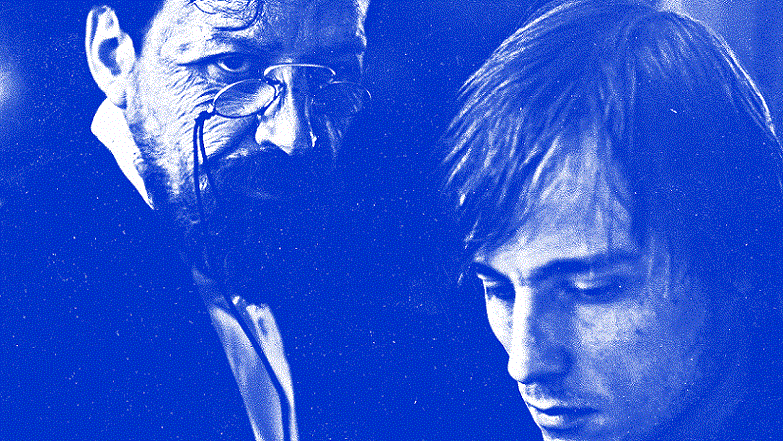
Sokurov, the most distinctive of the Russian filmmakers since Tarkovsky, with ironic, evasive, bizarre and often unimaginably beautiful films behind him: an adaptation of Flaubert's "Madame Bovary" seen through the eyes of the painter Courbet, the masterpiece "Days of Eclipse" (I will review it another day), "Moscow elegy", a documentary about his mentor Tarkovsky, "Mother & Son", a loving meditation of a son nursing his dying mother. Perhaps he gathered the most fame from his epic and technically impressive "Russian Ark" (2000) which takes us through a breathtaking ride through the Hermitage Museum's 200+ year old history in just one take.
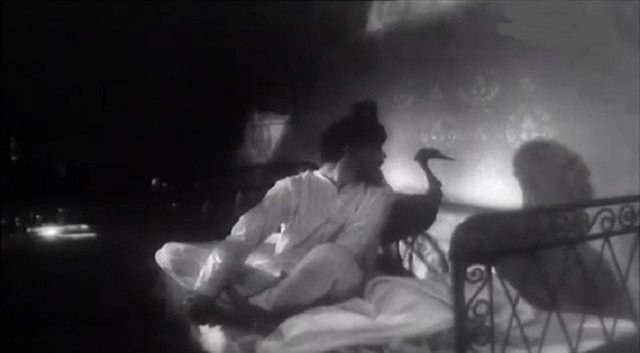
Each film with its unique narrative technique - Sokurov are among the few in the film industry who aren't satisfied with ready-made formulas and he seldomly repeats himself. In "Kamen" his hyper-romantic aesthetic is like a sharp knife against the rapid and superficial media glitz of the western world: the usual supply of films that focus on plot, fast cuts and action. In "Kamen" almost nothing happens. Except that an atmosphere is gradually being built up.
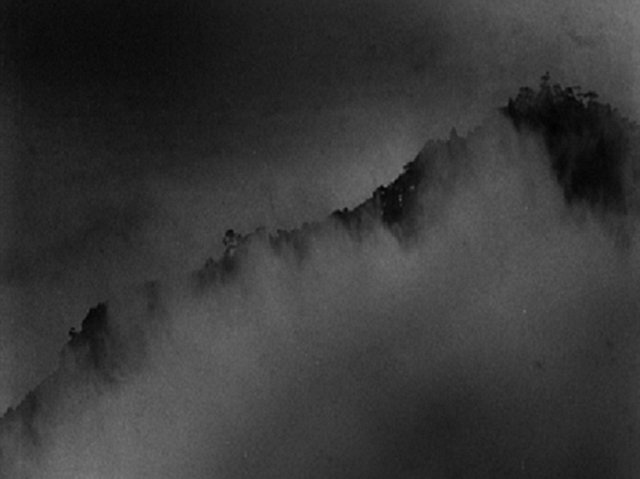
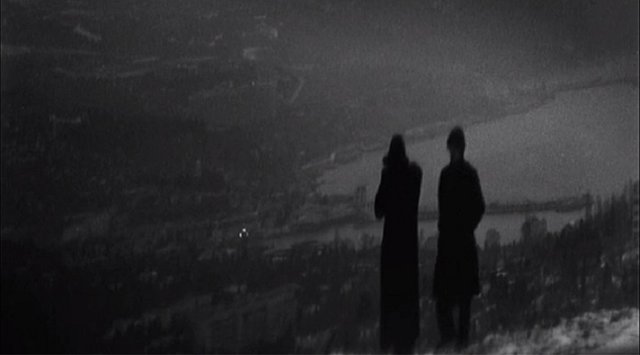
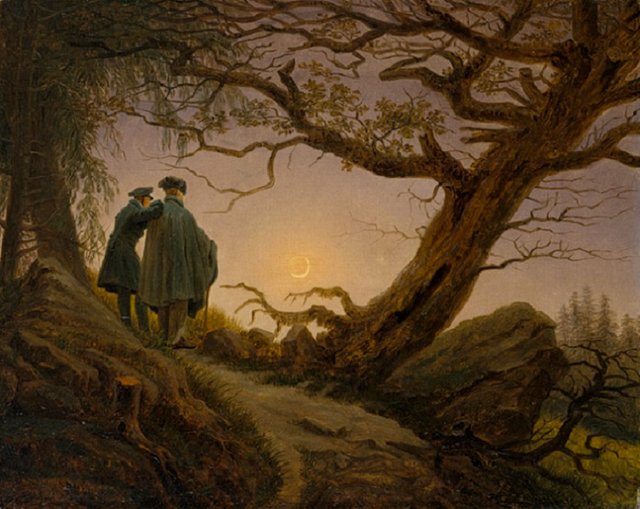
There are as usual plenty of references to both romantic literature and painting. He frequently uses the music of the romantic masters, in this case Tchaikovsky and Mahler, but, distorted and with heavy reverb. Misty mountain ridges and the backs of men in long coats undeniably brings to mind the paintings of the German 19th century master Caspar David Friedrich (see above). The islands we see towards the end are frighteningly similar to the Arnold Böcklin paintings of the "Isle of the Dead".
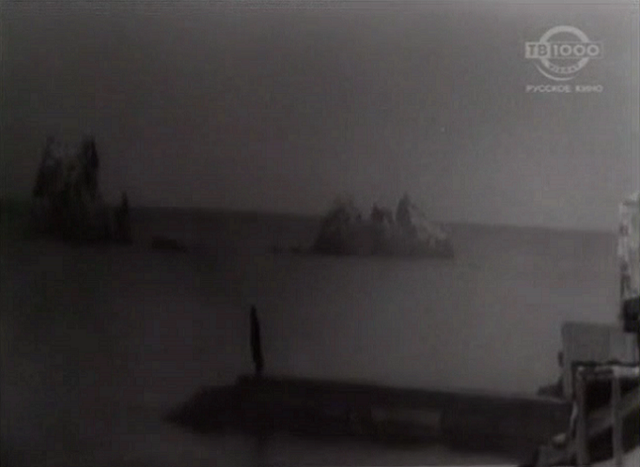
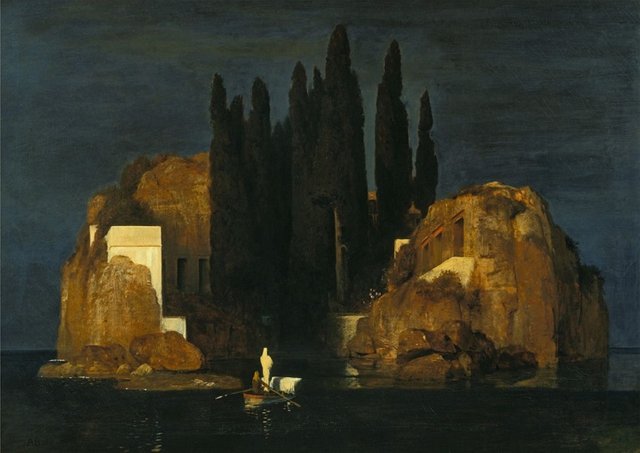
Sokurov's storytelling and imagery is the boldest imaginable: everything is filmed in black and white through a lens filled with liquid, which occasionally creates the most bizarre distortions. It's a film to dwell in. It has a meditative rhythm and a breathtaking beauty that caress the viewer. I have pondered on what the film is all about since I saw it, but I honestly don't know. Perhaps it's about a meeting over the boundary of the centuries: is the old man in the house Anton Chekhov?
Is he a representation of the old and forgotten Russian culture, who bides his time in this desolate house, anticipating the few visitors that at last will put him to use and finally come and listen to him again?
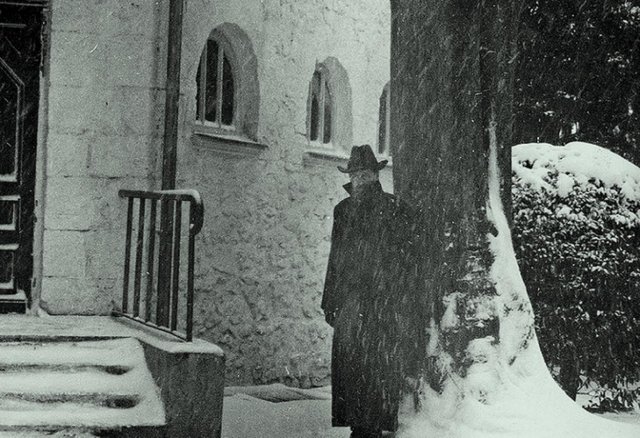
2 cents
Well done, very knowledgable. I like your style :-)